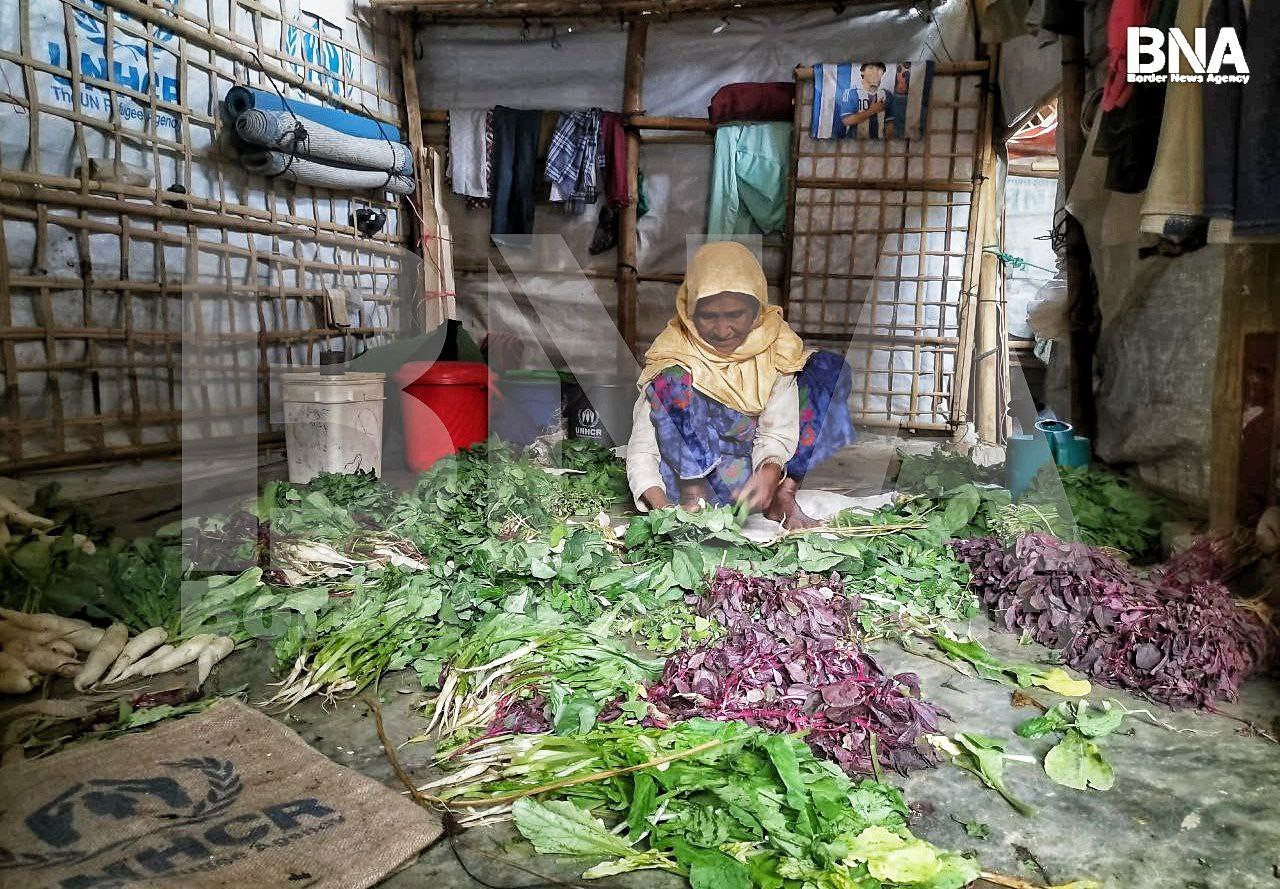Cox’s Bazar, Bangladesh – Amidst the crowded shelters and difficult living conditions of the Rohingya refugee camps in Cox’s Bazar, a quiet revolution is taking root. Thousands of Rohingya refugees are turning to home gardening, transforming small patches of land beside their shelters into vibrant green spaces. These gardens are not only helping to supplement their limited food supplies but also offering a sense of purpose and hope in the face of adversity.
Since fleeing violence and persecution in Myanmar in 2017, nearly a million Rohingya have been living in refugee camps in southeastern Bangladesh. Despite ongoing humanitarian assistance, food security remains a persistent challenge. In response, many refugees have begun cultivating vegetables such as spinach, chili, eggplant, and gourds in makeshift gardens, using seeds provided by aid organizations or saved from rations.
“Growing my own vegetables means I can feed my children fresh, healthy food,” said Amina Begum, a mother of four living in Kutupalong camp, the largest refugee settlement in the world. “It also reminds me of my home in Rakhine, where we had our own land and farm.”
Aid organizations have supported these efforts by providing seeds, training, and tools to encourage sustainable gardening practices. The Food and Agriculture Organization (FAO) and World Food Programme (WFP), in collaboration with local NGOs, have launched initiatives promoting household gardening as a way to improve nutrition and reduce dependence on food aid.
“Home gardening empowers refugees to take control of their food sources, improves their diet diversity, and strengthens community resilience,” said an FAO representative in Cox’s Bazar. “It also contributes to mental well-being, offering a productive and therapeutic activity amid the stress of camp life.”
For many Rohingya, gardening is more than just a source of food, it is a way to reconnect with their agricultural heritage. In Myanmar’s Rakhine State, farming was a key part of daily life for many Rohingya families. Now, tending to these small gardens offers a sense of normalcy and dignity in the face of displacement.
However, the initiative is not without its challenges. Space in the densely populated camps is limited, and the poor, sandy soil often requires enrichment to support plant growth. Water scarcity during the dry season also poses difficulties, forcing gardeners to rely on limited supplies from shared wells and pumps.
Despite these obstacles, the determination of the Rohingya community shines through. “Even if the land is small, we can still grow something,” said Mohammed Islam, a refugee in Balukhali camp. “These gardens are proof that life can flourish, even in difficult places.”
As the refugee crisis continues with no immediate solution in sight, home gardening stands as a symbol of resilience and resourcefulness, offering a glimmer of hope for a community striving to build a better future from the ground up.






